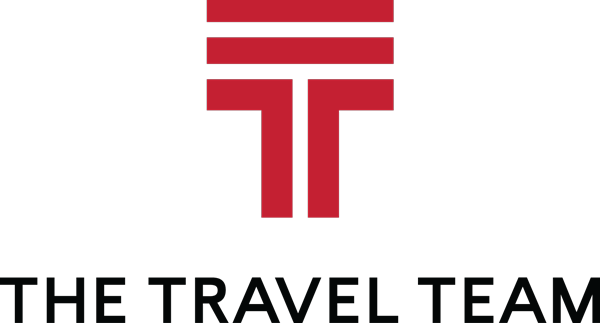The dynamics of the corporate travel industry are changing, with significant effects on individual travel programs of all sizes and revenue goals. Industry observers have been focused on rising costs as the primary driver of these changes but enthusiasm remains high after business travel’s post-COVID pandemic recovery. Despite margin pressures, there’s plenty to feel positive about regarding the current business travel trends primed to impact 2024 and beyond.
With pandemic-related turmoil significantly impacting travel markets in recent years, many program managers have had a hard time reaching their goals. But rebound and other trends have promoted optimism, setting the stage for programs to pursue new strategies. Program managers would do well to remain steadfast to this goal in the face of geopolitical conflicts’ unpredictable effects on travel markets.
Resilient travel program morale provides a fertile environment to execute the proactive solutions needed to overcome the fiscal and human challenges programs face. We believe the following five business travel trends are among those most primed for implementation in your program.
1. Business Travel Technologies
For a time, policy-oriented travel programs were the norm. The thinking went that comprehensive planning helped avoid costly surprises and improve program ROI. However, attempts to control every factor and outcome dictating program success leads to rigidity that often works against program goals. Policy-heavy programs can feel one-directional, omitting and even deterring valuable feedback from business travelers on the ground. All while program administrators spend inordinate time tracking, documenting, and ensuring policy compliance.
Technological advancements applied to travel programs promoting digitization, automation, and data analytics promise to help meet business travel objectives without cumbersome policy. Business travel technology can simplify the implementation of only the most essential policy guidance while improving reporting accuracy with less manpower and fewer overall resources. Absent excessive policy constraints, technology-forward programs can experiment and innovate while closely monitoring results.
2. Holistic Travel Management
It’s easy for travel managers to focus on the tremendous potential of corporate travel technologies to streamline business travel. Still, the potential of these advancements to impact bottom lines is largely wasted if program resources aren’t properly allocated. These resources can include rewards program points, automatic discounts on flights and hotels, and unused flight tickets as well as the size, scope, and adaptability of general program budgets.
The promise of corporate online booking, expensing, and travel risk assessment technologies is to simplify travel management so that humans can spend more time optimizing travel programs. The impact of holistic business travel programming is often twofold:
1) It allows business travelers more time to prepare and execute core business objectives when traveling.
2) It empowers travelers to identify and act on the opportunities that program managers can often miss to make their travel more efficient and cost-effective.
In some cases, holistic travel could mean traveler preferences are better incorporated into travel itineraries, especially when real-time changes are cost-neutral or accrue savings. While sometimes difficult to quantify, the resulting morale boost can improve employee satisfaction and retention.
3. The Importance of Cultural Competency
Cultural competency in business is the systematic practice of observing the cultural differences expressed by minority and foreign individuals within organizations. The exact application of cultural competency can differ based on the situation. Fundamentally, implementation requires those who are traditionally in power to allow more expression of other’s values, beliefs, and customs within business environments. This trend has important implications for the present and future of business travel as it becomes more inclusive and further globalized.
Our review of cultural competency for business travel outlines actionable strategies for individual travelers and their employers. However, the nuances of cultural competency require organizations to think about how they can implement it effectively within their existing internal processes and client/partner-facing ones, which could mean supplying employees with additional resources and training.
4. The Value of High-Quality Traveler Accommodations
Cost-effective business travel is usually about two factors: performance and logistics. These shouldn’t just apply to the top-down coordination and execution of travel programs. They should also improve the travel experiences of each business traveler to ensure their comfort and safety.
Travel management teams and policymakers can do a great deal to support travelers’ missions to execute business objectives by focusing on high-value accommodations that promote traveler satisfaction and well-being.
Technology paves the way, with platforms designed to objectively assess the safety of overnight business travel accommodations based on the key factors of location, safety, and proximity to emergency services.
As businesses prepare to enter 2024 and beyond, detailed management of travel rewards programs will be essential to program success, particularly for negotiated rates. Access to comprehensive travel data can support efforts to pursue corporate negotiated rates by identifying internal trends earlier and providing accurate projections of program performance. With this information, programs can approach the right travel vendors who can support program goals with the rates and locations that work best for individual travel programs.
Negotiated rates can also include access to rewards points programs that can be used by travel programs to facilitate even more savings on top of negotiated rates. But these can be challenging to optimally track and apply without advanced travel technologies and expert business travel services on your side. The effective, technology-driven management of reward programs allows better access to business hotels meeting traveler needs domestically and internationally by maximizing reward value and applying discounts at optimal times.
Vendor relationships aren’t just a valuable tool for cost-savings and reliable services. Vendors also provide individual travelers with unique perks to make their time traveling more streamlined and satisfying. Small amenities such as ergonomic in-room desks and on-premise communal work spaces with ready access to freshly prepared meals make a big impact when travelers can rely on them wherever they go. In-room refrigerators and other extended-stay amenities have also become popular and are ideal for travelers who spend prolonged periods at their destinations.
5. Elevated Duty of Care
Travelers face significant challenges in the air and on the ground related to their safety and well being. Ongoing assessment and adaptation to changing travel landscapes is not only important for maintaining the integrity of your travel program but is a moral obligation to employees with implications for employee satisfaction and public relations.
Trends in duty of care include an increased emphasis on traveler well being, with companies taking traveler health and safety seriously. And while many companies have kept this concern top of mind, they didn’t have the tools to execute traveler safety plans as effectively as they’d like.
Enter duty of care software solutions, helping support duty of care goals with near real-time insights. With a flow of useful risk-related information reflecting current conditions, companies can do more to protect travelers facing, at times, extreme and rapidly developing changes. With an eagle-eye view of the broader travel landscape, your company can work more directly with travelers.


